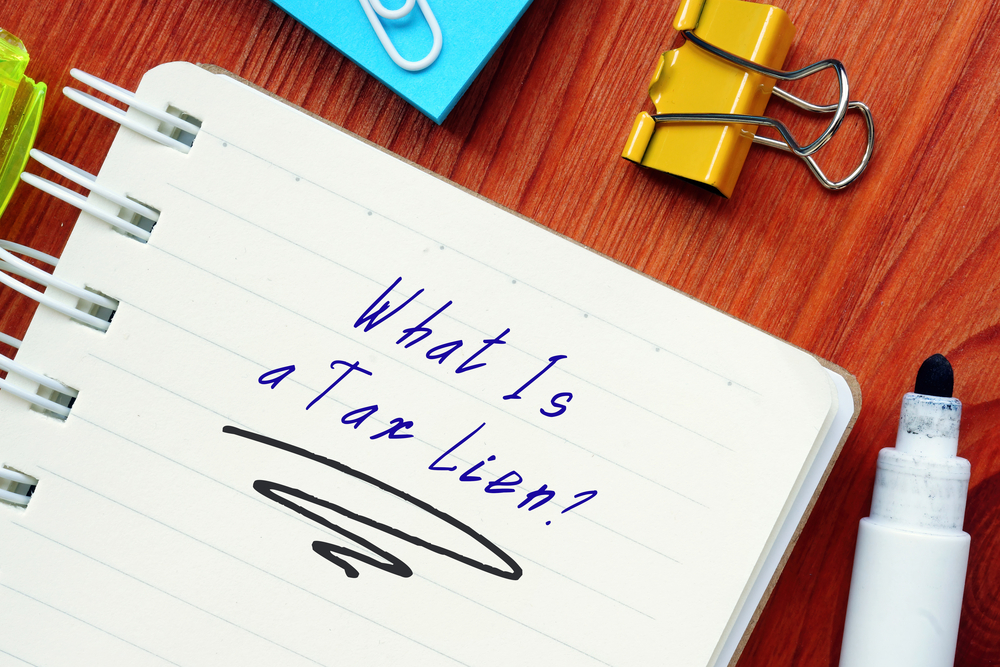What to Do about a Federal Tax Lien on Your Property
- Feb 15, 2022
 Many taxpayers aren’t aware of the sheer number of ways in which the IRS can pursue payment on your tax debts. If you owe a large sum in overdue taxes, one of the methods the IRS will use to retrieve those taxes is putting a tax lien on your home and other property—including your vehicles, and even your business. What is a tax lien, how does it impact you, and what can you do about it? Keep reading to find out.
Many taxpayers aren’t aware of the sheer number of ways in which the IRS can pursue payment on your tax debts. If you owe a large sum in overdue taxes, one of the methods the IRS will use to retrieve those taxes is putting a tax lien on your home and other property—including your vehicles, and even your business. What is a tax lien, how does it impact you, and what can you do about it? Keep reading to find out.
What Is a Tax Lien?
A federal tax lien means that the IRS has a legal right to your home. It doesn’t mean that the IRS has taken possession of your property, nor does it necessarily mean that they’ll foreclose on your home. However, if you sell any property that’s subject to a federal tax lien, the IRS has a right to collect proceeds from the sale to satisfy your tax bill.
How Does It Impact You?
If the IRS isn’t actually taking over your property, then does a tax lien really have an immediate impact on you? In some cases, you might feel that the lien is nothing more than a piece of paper. However, the lien will alert your creditors to the IRS’s right to your property as well. This can make it difficult to refinance your mortgage or open a home equity line of credit on your home. In the case of a business, you may not be able to get business loans when you have a tax lien against you.
After a time, if all collection attempts have failed, the IRS can initiate a foreclosure on your home in order to collect on your tax debt. Additionally, it’s worth noting that a federal tax lien has a serious negative impact on your credit. Even after you pay off the lien, it will remain on your credit report for seven years after the payoff date.
What’s the Process for Putting a Lien on Your Property?
Like all collection efforts, the IRS follows a specific, required process before they’ll place a tax lien on your property. Generally, the IRS will only pursue this line of collection if they determine it will be difficult to collect what you owe within the statute of limitations for collecting on a tax debt (typically, ten years).
You will receive many notices regarding your tax debt in the time leading up to this decision. If and when the IRS does determine that a federal tax lien is their best option for collecting what you owe, you’ll receive a Notice of Federal Tax Lien—and your creditors will receive it too. If you receive this notification, you should take immediate action to have that lien removed.
How Can You Get a Lien Removed?
There are a few options available to debtors who have a federal tax lien on their properties. Here’s a basic outline of the options that you could pursue:
- Pay your debt in full – If you have the means to pay off your tax debt, this is the best way to get your tax lien removed. The IRS will release the lien within 30 days of your debt being paid.
- Use home equity – As we mentioned, refinancing your mortgage is difficult to do with a tax lien on your property. However, if you contact the IRS and inform them you intend to use the cash to pay off your tax debt, they will “subordinate” the lien. This doesn’t remove the lien, but it allows other creditors (i.e., your mortgage lender) to move ahead of the IRS. You may then be able to refinance and pay your debt in full, so you can have the lien completely removed.
- Apply for lien withdrawal – A lien withdrawal removes the Notice of Federal Tax lien from all public records—including your credit report. You have to apply for a withdrawal, and you’ll typically be required to set up an installment plan to qualify. Once you’ve set up your payment plan, it can take two or three more months for the lien to be withdrawn.
- Sell your house – Again, selling a home with a tax lien is difficult unless you’re working with the IRS on it. Contact them and ask for them to discharge your lien, on the basis that your sale proceeds will be used to pay off your tax debt. The discharge allows the home to be sold to a new owner without a lien in place.
If you’ve been noticed that the IRS will be placing a lien on your property, it’s best to act quickly, before the lien is put in place. Contact the IRS Advocates today for assistance.
STOP THE IRS!
Settle for less & Protect your assets
Never Call the IRS without Speaking with our Pros First!